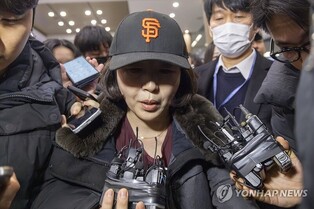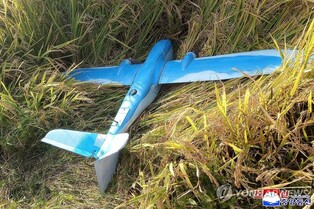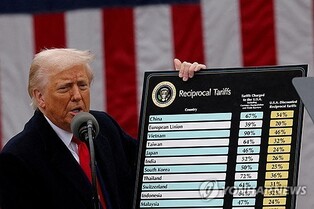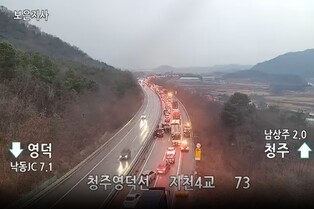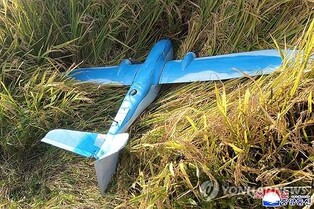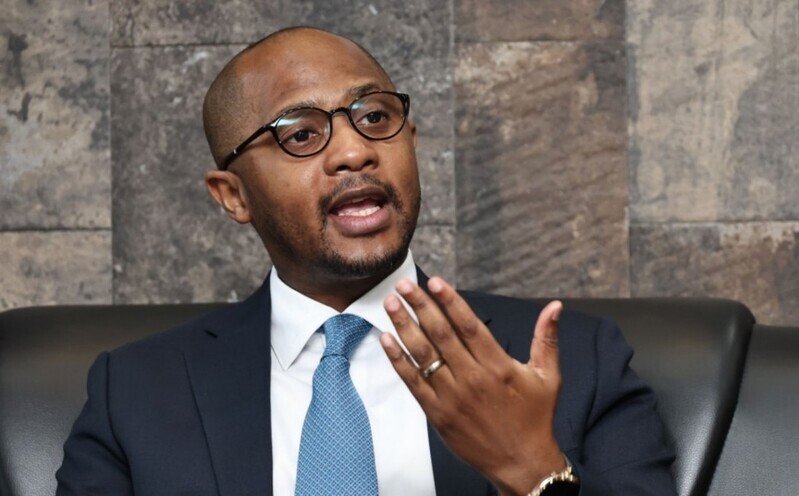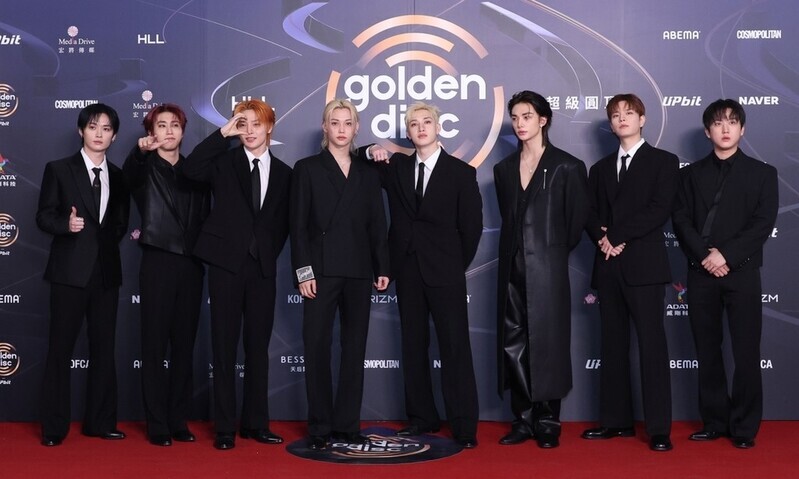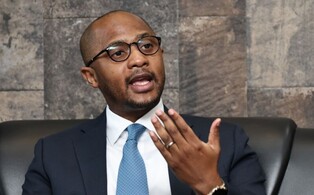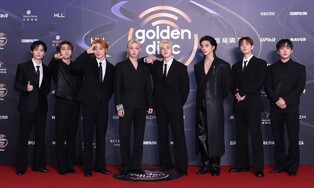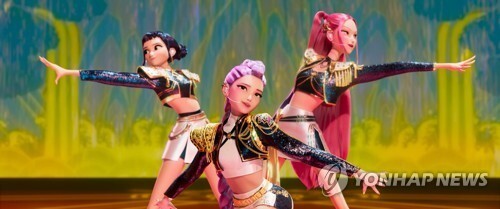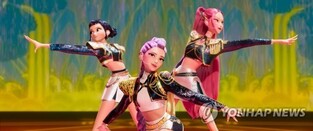(News Focus) Kim-Chinese military parade
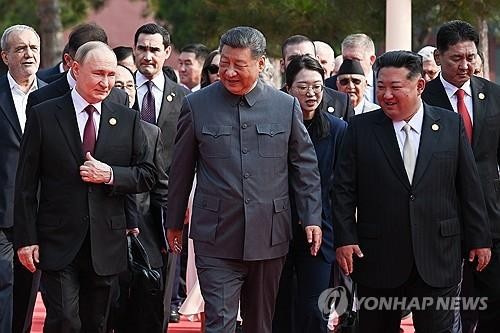 |
| ▲ This photo by Tass shows North Korean leader Kim Jong-un (R, front), Chinese President Xi Jinping (C) and Russian President Vladimir Putin (L, front) walking shoulder to shoulder ahead of a military parade at Tiananmen Square on Sept. 3, 2025. (PHOTO NOT FOR SALE) (Yonhap) |
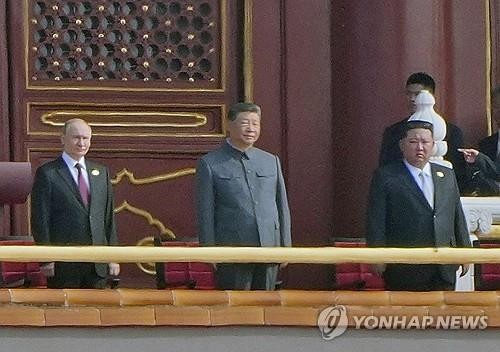 |
| ▲ This photo by Kyodo News shows North Korean leader Kim Jong-un (R), Chinese President Xi Jinping (C) and Russian President Vladimir Putin standing next to each other during a military parade at Tiananmen Square on Sept. 3, 2025. (PHOTO NOT FOR SALE) (Yonhap) |
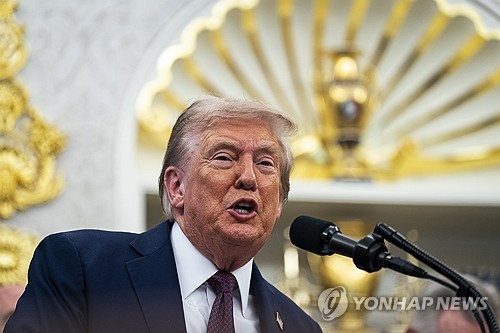 |
| ▲ U.S. President Donald Trump speaks at the White House in Washington on Sept. 2, 2025, in this photo released by EPA. (Pool photo) (Yonhap) |
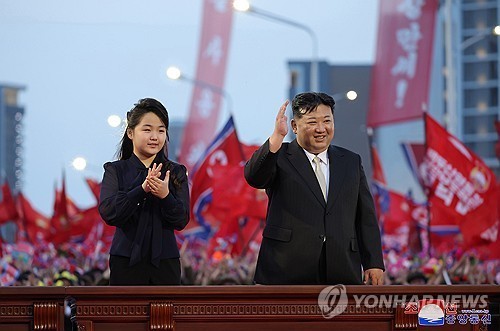 |
| ▲ North Korean leader Kim Jong-un (R) attends a ceremony alongside his daughter, Ju-ae, to mark the completion of a new street in Pyongyang on May 14, 2024, in this file photo carried by the North's official Korean Central News Agency the next day. (For Use Only in the Republic of Korea. No Redistribution) (Yonhap) |
(News Focus) Kim-Chinese military parade
(News Focus) Kim's Beijing parade attendance 'geopolitical power play' to boost his authority, leverage, recast outcast image: experts
By Song Sang-ho and Kim Dong-hyun
WASHINGTON, Sept. 3 (Yonhap) -- Standing alongside the Chinese and Russian leaders at this week's military parade in Beijing, North Korean leader Kim Jong-un staged a highly calibrated "geopolitical power play" to boost his authority and negotiating leverage, while effacing his image as an isolated ruler, analysts said Wednesday.
Kim and Presidents Xi Jinping and Vladimir Putin jointly appeared at Wednesday's parade marking the 80th anniversary of the end of World War II -- a choreographed showcase of China's military heft -- in a display of their solidarity and alignment against the West.
The first joint appearance of the three countries' leaders in 66 years came as Russia's war in Ukraine has brought the leaders closer together, forming an anti-West axis, at a time when the United States has been prodding allies and partners to contribute more to help counter an increasingly assertive China.
"Kim Jong-un's appearance alongside Xi Jinping and Vladimir Putin at the Beijing military parade is a calculated geopolitical power play," Michael Raska, assistant professor at the S. Rajaratnam School of International Studies at Nanyang Technological University in Singapore, said.
He added, "In the end, the joint appearance at the parade sends a political message: Beijing, Moscow and Pyongyang are working together more than ever, and Kim is leveraging this alignment to reinforce both his authority and bargaining power."
Stepping onto the viewing stand overlooking Tiananmen Square, Kim appeared to have multiple aims in mind, including seeking recognition as a nuclear power state, positioning his country as a "normal" state rather than a global pariah, strengthening his hand ahead of future talks with the United States and ameliorating ties with China that were strained amid Pyongyang's deepening alignment with Moscow, experts said.
"For Kim, standing with Xi and Putin projects that North Korea is not isolated but part of this anti-Western bloc. It boosts his legitimacy at home by showing he has powerful friends, while reminding Washington, Seoul, and Tokyo that Pyongyang remains relevant in the broader rivalry," Raska said.
"His first appearance at a multinational event underscores renewed confidence after years of sanctions, pandemic isolation, and economic hardship."
Kim's attendance at the parade marked his debut on the multilateral stage. The move came despite speculation that Pyongyang might eschew such a multinational setting given its authoritarian governance structure in which its leader must be at the center of attention rather than being reduced merely to one of many attendees.
Sydney Seiler, senior advisor at the Korea Chair of the Center for Strategic and International Studies, said that Kim's trip to China signaled that he relishes the shifting contours of geopolitics that may prove conducive to advancing his strategic goals, such as gaining recognition for the North as a nuclear power.
"Kim clearly is basking in the impression that the U.S.-led rules-based world order is waning (and that) the group of autocratic revisionist countries challenging that order is waxing, and Kim is seen as a valuable and powerful, if not leading, member of that club by Russia and China," he said.
Kim's engagement with Xi and Putin came after his regime has ruled out any denuclearization talks with Washington, though U.S. President Donald Trump has repeatedly expressed his willingness to resume diplomacy with the North Korean leader.
Responding to Kim's joint appearance with Xi and Putin, Trump voiced apparent discomfort on Tuesday night.
"Please give my warmest regards to Vladimir Putin, and Kim Jong-un, as you conspire against The United States of America," the president wrote on Truth Social.
Trump's reaction apparently suggested that Kim's attendance at the parade drew Trump's attention to the fact that Pyongyang is in a different position of power and diplomacy compared with its past status as an isolated nation under the straitjacket of international sanctions and criticism for its nuclear and ballistic missile programs.
"Kim's meeting with Putin and Xi offers him greater international legitimacy and puts him in a position of strength, especially if he decides to meet Trump at some point," Andrew Yeo, the SK-Korea Foundation chair at the Brookings Institution's Center for East Asia Policy Studies, said.
"Kim definitely feels more comfortable and confident with support from leaders like Putin. His participation in a multilateral setting reflects this newfound confidence."
Yeo also pointed out that Pyongyang's trilateral engagement with Beijing and Moscow suggests any deal Trump makes on denuclearization with Kim will require participation and buy-in from Beijing and Moscow.
The military parade followed South Korean President Lee Jae Myung's recent trip to Japan and the U.S. during which Lee, Trump and Japanese Prime Minister Shigeru Ishiba renewed their commitment to trilateral security cooperation in the midst of North Korea's advancing threats and China's growing assertiveness.
The parade and engagement between the U.S. and its core Asian allies reinforced views that the world is splintering into two geopolitical blocs -- one led by the U.S. and the other by China -- in an intensifying Sino-U.S. rivalry on multiple fronts, including maritime security, trade and technological leadership.
"The fact that these three leaders met one week after President Lee's meeting with Ishiba and Trump turned a strategic landscape into a U.S.-ROK-Japan vs Russia-China-North Korea bloc, signaling the rise of new Cold War dynamics in the region," Ellen Kim, director of academic affairs at the Korea Economic Institute of America (KEI), said. ROK is short for South Korea's official name, the Republic of Korea.
The public display of trilateral solidarity among China, Russia and North Korea is "very bad news" for the U.S. at a time when the Trump administration's America First and tariff policies have weakened its ties with allies and partners, Kim added.
"From a strategic perspective, yesterday's gathering will be seen as a convergence of European and Asian theaters, which will complicate the Trump administration's bilateral approach and increase pressure on it following his recent diplomatic setback with Putin over Ukraine," she said.
Experts largely painted a darker outlook for the North's denuclearization and its engagement with the U.S. or South Korea following the optics of Kim juxtaposed alongside Xi and Putin at the parade.
"This gathering will make the future denuclearization talks even more difficult," Kim said. "By standing next to the Russian and Chinese leaders, Kim created an image that North Korea is a nuclear state along with Russia and China. This sends a strong message once again that he will not give up nuclear weapons."
Wednesday's parade signaled ongoing efforts by both China and North Korea to improve bilateral ties amid concerns by Beijing over its apparently diminished sway over Pyongyang and worries by Pyongyang over its overreliance on Moscow for food, fuel, military support and other assistance.
"China's goal would likely be to gain influence with North Korea that appears to have eroded with growing Russia-DPRK relations over the past three years. Kim will likely pocket these (gains) while dodging any pressure to back down on its strategic partnership with Moscow," Seiler said.
"In fact, the choreographed impression of the closeness between Xi, Putin, and Kim before and during the parade may be designed to signal that rumors of any PRC discomfort with the Russia-DPRK relationship is overstated," he added. PRC is short for China's official name, the People's Republic of China, while DPRK refers to the North's official name, the Democratic People's Republic of Korea.
Rob Rapson, former acting U.S. ambassador to South Korea, called Kim's attendance at the Beijing event a "smart" move.
"(It) helps North Korea repair strained relations with China, and may improve its standing with a broader subset of countries also having issues with the U.S. under Trump," Rapson said.
"(It) also bolsters Kim's leverage with Washington and Seoul as he considers whether or not to reengage with Trump. I think he will reengage."
But the former diplomat voiced concerns about the media "overhyping" the encounter among Kim, Xi and Putin.
"Despite the sensational pictures, this isn't yet a unified bloc (or axis)," he said. "More like an opportunistic event to better leverage Trump as he seeks to engage and do 'deals' with each."
Moreover, Rapson raised questions over efforts to deepen trilateral cooperation among South Korea, the U.S. and Japan, noting that an increased level of military cooperation among them came largely at the urging of U.S. security and defense establishments and "China hawks," not necessarily from Trump who eyes deals with Beijing and Moscow.
"Seoul and Tokyo clearly see this contradiction in Washington's policy approach and are hedging appropriately given their own strong national interests in maintaining constructive ties with Beijing," he said.
He also argued that trilateral cooperation is impaired by Seoul and Tokyo's growing "resentment" of the economic pain Trump inflicted on the Asian allies through his trade and investment deals.
"Xi is certainly exploiting this development," he said.
On Kim's decision to bring his daughter Ju-ae to China, analysts said that it underscores the likelihood that she will be the next leader.
"It seems more and more likely that the daughter, Kim Ju-ae, rather than the sister, Kim Yo-jong is the likely next leader," Yeo said.
"Bringing the daughter to such a high profile event boost her legitimacy not only in the eyes of North Koreans, but among Kim's close allies, Moscow and Beijing, as well. It also provides Ju-ae her first major experience traveling overseas on an official state visit to another country."
Seiler echoed this view.
"Kim likely brought his daughter along as a reminder that she is both the successor and future of North Korea," he said. "It is also a great opportunity to get first-hand experience with international gatherings and representing the DPRK at such events."
(END)
(C) Yonhap News Agency. All Rights Reserved





















